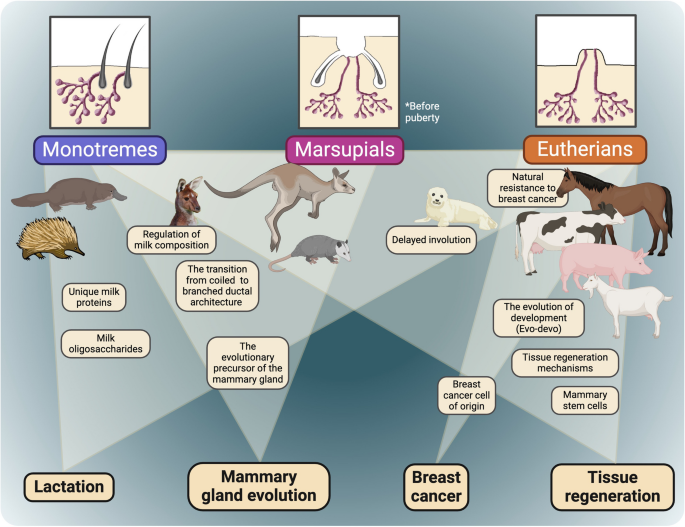2024-08-14 タフツ大学
<関連情報>
- https://now.tufts.edu/2024/08/14/what-miniature-organs-reveal-about-evolution-lactation-and-breast-cancer
- https://link.springer.com/article/10.1007/s10911-024-09559-z
オルガノイドを用いて乳腺の多様性を利用し、新たな知見を得る Using Organoids to Tap Mammary Gland Diversity for Novel Insight
Gat Rauner
Journal of Mammary Gland Biology and Neoplasia Published:28 March 2024
DOI:https://doi.org/10.1007/s10911-024-09559-z

Abstract
This article offers a comprehensive perspective on the transformative role of organoid technology on mammary gland biology research across a diverse array of mammalian species.
The mammary gland’s unique development and regenerative capabilities render this organ an ideal model for studying developmental evolution, stem cell behavior, and regenerative processes. The discussion extends to the use of cross-species mammary organoids to address key biological inquiries in evolution, tissue regeneration, cancer research, and lactation, highlighting the limitations of traditional mouse models and the benefits of incorporating a more diverse range of animal models.
Advances in organoid biology have been critical in overcoming ethical and practical constraints of in-vivo studies, especially in human research. The generation of human and mouse mammary organoids that faithfully recapitulate in-vivo tissues marks a significant stride in this field. Parallel capabilities are now emerging for other mammals, as well.
Utilizing mammary organoids from various species has the potential to make invaluable contributions to our understanding of mammary gland biology, with implications for regenerative medicine, cancer research, and lactation studies, thereby contributing to advancements in human health, agriculture, and nutrition science.


